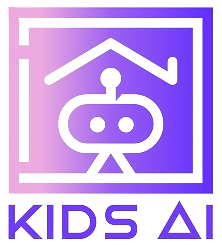
In today’s rapidly evolving digital age, it is crucial for children to learn essential skills that will equip them for the future. Technology, particularly Artificial Intelligence (AI), has become an integral part of our lives, and understanding it is no longer a luxury but a necessity. Teaching children about AI at an early age can empower them to navigate the digital world and harness its potential.
So, what exactly is AI? In simple terms, AI refers to the capability of machines to perform tasks that usually require human intelligence. From voice recognition assistants to self-driving cars, AI is transforming the way we live, work, and learn. Therefore, it is essential that children not only benefit from AI but also comprehend its underlying principles.
One of the key reasons to introduce AI learning to children is to foster critical thinking and problem-solving skills. AI technologies often require the ability to analyze data, identify patterns, and adapt to changing circumstances. By engaging in AI-powered activities, children can develop logical reasoning, creativity, and decision-making abilities, crucial skills needed for success in the digital age.
Another vital aspect of AI education is nurturing ethical and responsible usage of technology. With advancements in AI, issues related to privacy, data security, and biases have become more prominent. By educating children about AI, they can make informed decisions, understand the implications of their actions, and become responsible digital citizens. Moreover, they can contribute to creating a fair, equitable, and inclusive AI-powered society.
Fortunately, there are various resources available to facilitate AI learning for children. Many organizations and educational platforms offer AI courses specifically designed for young learners. These courses often include hands-on activities, coding exercises, and interactive projects that make learning engaging and enjoyable. Additionally, AI-powered educational tools like chatbots or virtual tutors can provide personalized learning experiences tailored to individual needs and learning preferences.
Furthermore, integrating AI learning into the school curriculum can profoundly impact a child’s education. By incorporating AI concepts across various subjects, educators can foster interdisciplinary learning and help students understand the practical applications of AI in different fields. This approach not only enhances their understanding of AI but also encourages them to explore future career opportunities in AI-related fields.
It is important to note that AI learning is not restricted to technical aspects only. While it’s crucial to introduce coding and programming concepts, children also need broader AI literacy. This includes understanding the benefits and limitations of AI, recognizing the biases that exist in AI algorithms, and appreciating the social impact AI has on individuals and societies. A holistic approach to AI learning enables children to make well-rounded decisions and promotes a diverse and inclusive AI ecosystem.
In conclusion, teaching children essential skills in the digital age requires an understanding of AI and its underlying principles. AI learning equips children with the necessary skills to succeed in the evolving digital landscape while fostering critical thinking, problem-solving, and ethical usage of technology. By integrating AI education into the curriculum and utilizing AI-powered educational tools, we can ensure children are prepared for the challenges and opportunities that lie ahead. Let’s embrace AI learning 101 and empower the next generation to thrive in the digital world.



